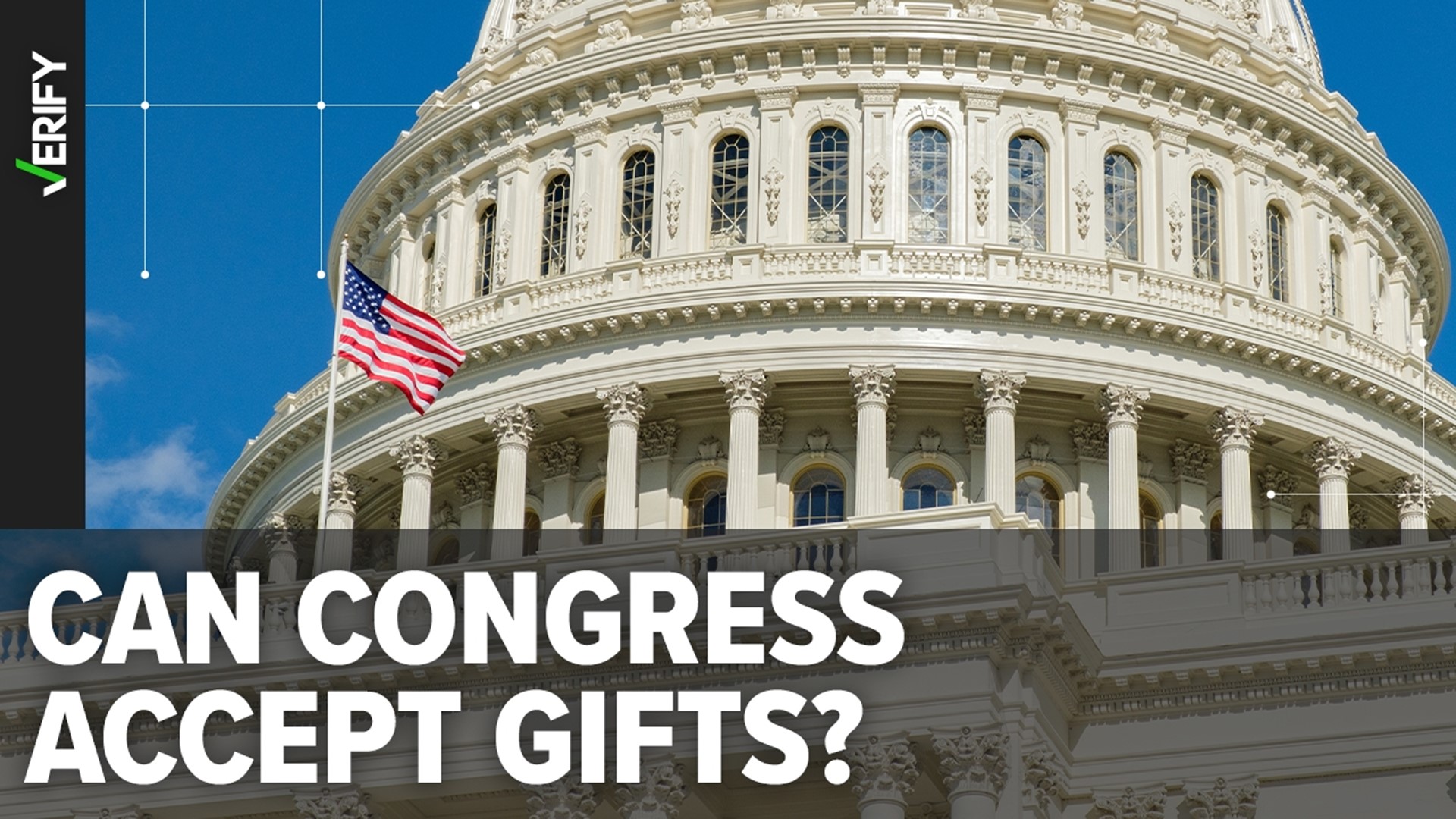Political interest groups spend millions every year advocating for their issues, attracting attention from many Americans concerned about the ethical questions that spending raises.
One VERIFY viewer told us that when they worked for the federal government, they had to abide by a strict set of rules regarding what sorts of gifts they could accept.
Our viewer wanted to know whether members of Congress have to live up to the same standard, or whether they are allowed to accept gifts from lobbyists and interest groups.
THE QUESTION
Are members of Congress required to follow rules about accepting gifts?
THE SOURCES
THE ANSWER
Yes, federal law on gifts applies to members of Congress as well as all federal employees. The House and Senate each have detailed ethics codes explaining which gifts are permissible and which are prohibited.
WHAT WE FOUND
Federal law regarding gifts is the same for elected members of Congress and federal agency employees.
5 U.S. Code § 7353 states “No Member of Congress or… employee of the executive, legislative, or judicial branch shall solicit or accept anything of value from a person… whose interests may be substantially affected by… the individual’s official duties.”
In other words, members of Congress can’t take gifts from anyone whom they could use their role to benefit – which given the powerful nature of the legislative branch, means almost anyone.
The law provides room for exceptions, but does not get into specifics. Instead, the more detailed definitions of what are acceptable gifts are left up to individual agencies, each of which has its own ethics office and ethics code.
In Congress, those offices take the form of committees. Regulations on gifts are set and enforced by the House Committee on Ethics and the Senate Select Committee on Ethics, both of which are the only committees in their chamber to be wholly bipartisan – meaning they have exactly equal numbers of Democratic and Republican members.
These regulations are laid out in ethics codes, which apply to both elected members and their staff, and which go into extensive detail about what sorts of gifts are allowed. The rules are generally dependent on who the gift is from, how much it’s worth, and sometimes what the intention behind it is.
For example, most gifts from relatives are allowed, while most gifts from federally registered lobbyists are banned, no matter the size.
In many situations, small gifts worth less than $50 are allowed, but there are exceptions to that, too. For instance, the gift cannot be given as a thank you to a member for passing a certain bill, or sent to explicitly encourage them to take some action.
Some gifts from friends are allowed, but if they exceed $250 or if the friend has ties to an interest group, they may be prohibited.
Gifts that come in the form of cash or gift cards are almost always banned, even if they’re only worth a few dollars.
When there are grey areas, members are expected to get approval from their committee before accepting the gift.
Campaign contributions generally fall under a different set of rules laid out in federal elections law. However, congressional ethics codes specify that donations cannot be made in exchange for some action from the member.

